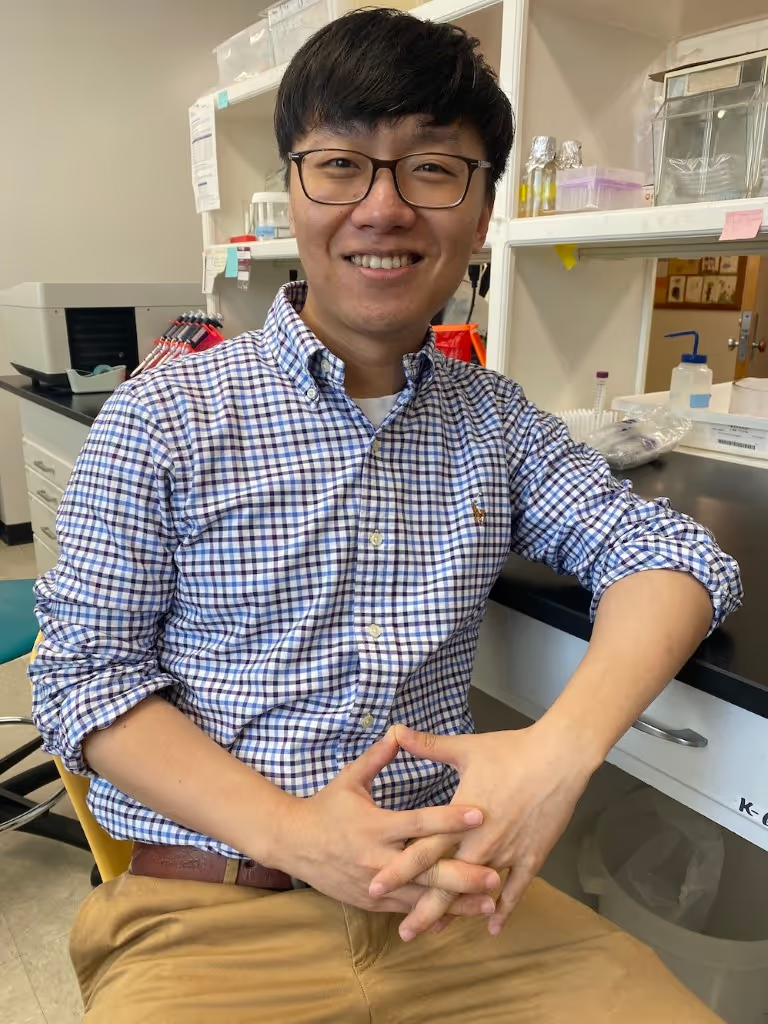Yin Wang, PhD
Insect-Microbiome Ecology & Evolution


Core research areas include insect-microbiome ecology, vector physiology, and evolutionary biology. This section outlines primary scientific interests and ongoing investigations.
Focus on ecological and evolutionary relationships between insects and their microbial communities, emphasizing functional roles and adaptation.
Study of physiological mechanisms in disease vectors, including environmental stress responses and effects on pathogen transmission.
Investigation of genetic and phenotypic variation to understand evolutionary patterns in insects and their symbionts.
Development of projects targeting vector-borne disease control, sustainable agriculture, and ecosystem health.



Exploring symbiotic relationships between insects and their microbiomes, with emphasis on ecological and evolutionary dynamics.
![[team] image of individual team member (for a food and agtech)](https://cdn.prod.website-files.com/686d94b85648dca5c9e5b6fe/686d98af7376f5c660cc70b6_515e92b9-87ed-493f-b4f0-92a4fec481d0.avif)

Investigating physiological mechanisms in disease vectors to inform vector control and public health strategies.

Ongoing projects include experimental and field-based studies on insect-microbe interactions and vector biology.
Open to interdisciplinary collaborations in entomology, microbiology, and vector-borne disease research.

Colleague testimonials
Yin’s quantitative analyses advanced our insect-microbiome research, consistently providing robust, reproducible data and clear interpretations.

Yin’s expertise in vector physiology strengthened our joint studies, ensuring methodological accuracy and reliable publication outcomes.
![[team]](https://cdn.prod.website-files.com/686d94b85648dca5c9e5b6fe/686d965ea1ea2ce0fc3a4fee_d1fd24ea-34b6-45f0-ae4c-894996bb0ec0.avif)
Yin’s commitment to transparent research and evolutionary ecology expertise contributed to a seamless, productive project experience.

Yin’s comprehensive knowledge and open communication facilitated effective microbiome research and successful project delivery.
![[background image] image of a team brainstorming in an office (for a web development agency)](https://cdn.prod.website-files.com/686d94b85648dca5c9e5b6fe/686d965ef30a50787ee1174a_5ca557e5-0dbc-47b4-b3ae-89ae4cb4ec0a.avif)
Explore detailed answers on research focus, methodologies, collaboration, and publications. Find essential information about ongoing projects and opportunities for involvement.
Research focuses on insect-microbiome ecology, vector physiology, and evolutionary processes. Projects address host-microbe interactions, disease transmission, and adaptation in vector species.
Collaboration is open to academic, industry, and government partners. Review current projects and submit your research interests and proposed scope via the contact form.
Approaches include molecular biology, genomics, field sampling, and bioinformatics. Techniques involve DNA/RNA sequencing, microbiome analysis, and physiological assays.
Access peer-reviewed articles, conference papers, and book chapters in the publications section. Each entry provides citation details and links to full texts when available.
Contact
For academic inquiries and partnerships.
![[team] image of individual team member](https://cdn.prod.website-files.com/686d94b85648dca5c9e5b6fe/686d965e4e0929f4a098014e_537d9318-68d3-4724-af96-339a751232df.avif)
Research collaborations and project proposals.
Weekdays, 8:00–17:00 EST.
University of Georgia
College of Agricultural & Environmental Sciences